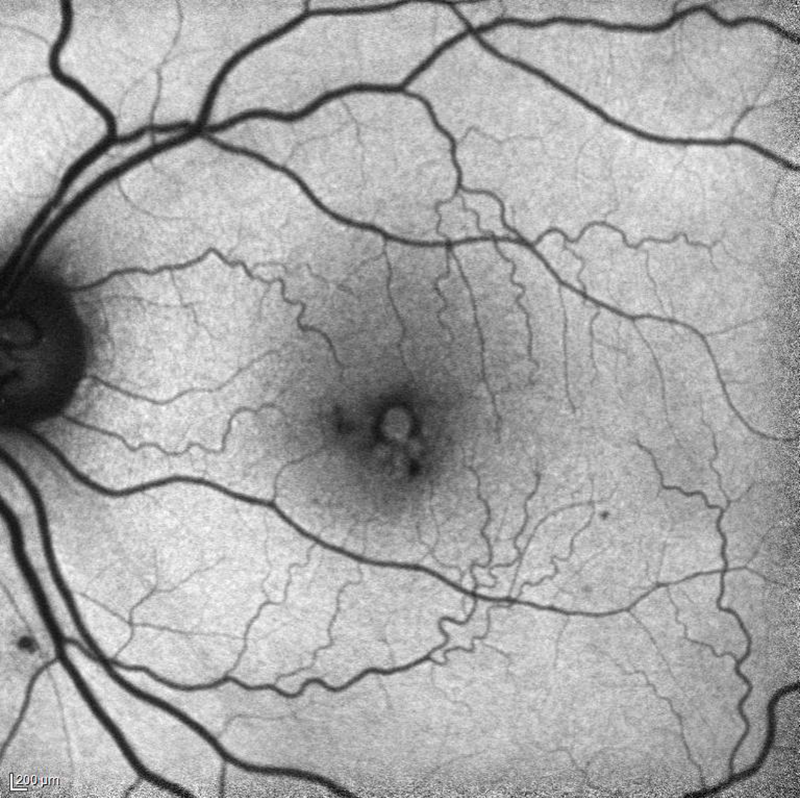High Blood Pressure and Your Retina
 fundus autofluorescence of a macular hemorrhage due to high blood pressure
fundus autofluorescence of a macular hemorrhage due to high blood pressure
How does high blood pressure affect the retina?
Signs of high blood pressure, also called hypertension, can be seen during an examination of the retina. Maintaining good control of your blood pressure can help avoid any problems with your eyesight, because the retina is one of the most sensitive organs to long-term hypertension. When a retina specialist examines the back of the eye, they can visualize the retinal blood vessels and evaluate their appearance. When these vessels are subjected to sustained high blood pressure they can become diseased and are then prone to damage and leakage.
What are some signs of damage to my retina due to high blood pressure?
Elevated blood pressure can cause certain structural changes to your retina, which your specialist will look for during your eye examination. Some of the signs that the retina is being damaged by elevated blood pressure include:
- Retinal Bleeding
- Retinal swelling
- Buildup of fat and proteins on the retina
- Narrowing and scarring of the blood vessels in the retina (arteriosclerosis)
- Blockages of the veins and arteries in the retina
- Small infarcts (areas of no blood supply) called “cotton wool spots)
- Optic nerve swelling (the optic nerve carries signals from the eye to the brain, allowing sight to be interpreted)